SUMY, Ukraine — It’s been more than three weeks since foreign troops swept into Russia for the first time since World War II, yet there is little sign that Ukrainian forces are about to be driven back across the border.
The Ukrainian advance may have stalled since the daring Aug. 6 assault, but Kyiv claims it controls nearly 500 square miles of Russian territory and has taken hundreds of prisoners of war.
Russian President Vladimir Putin has vowed to “squeeze” the Ukrainians out, but his military’s recent successes have been much farther afield in Ukraine’s east. Now both armies seem focused on the fight in enemy territory where they are gaining ground, even if that means leaving the door open in their own backyard.
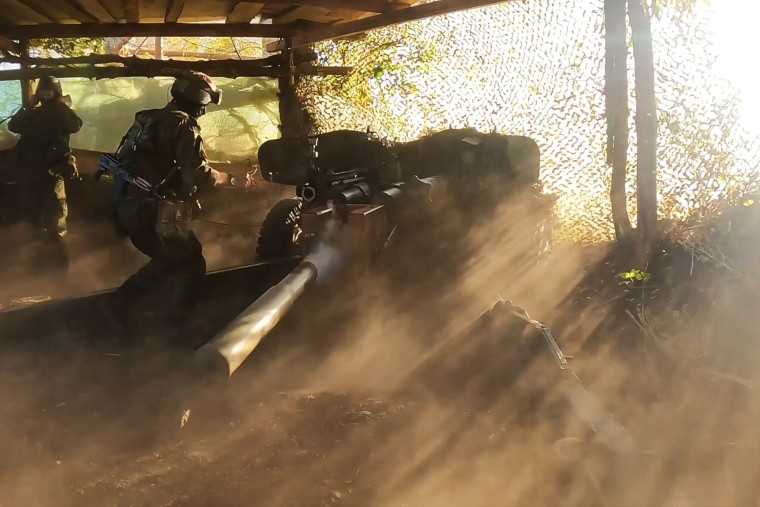
“This seems to be a game of who blinks first,” a Western intelligence official, who asked to remain anonymous due to the sensitivity of the situation, told NBC News. “Ukrainians are taking and holding Russian land. Russians are pushing in the east. It could be a question of who withdraws their forces first.”A key goal of Ukraine’s surprise attack on the southern Kursk border region seemed to be easing the pressure on its industrial heartland, where Russian troops have been advancing against outgunned and outmanned defenders.
Faced with the ignominy of losing his own territory to the neighbor he had invaded, the assumption seemed, Putin would scramble the Kremlin’s might to drive out the Ukrainians even if it meant sacrificing progress elsewhere. That has not been the case.
Ukraine’s top commander, Col. Gen. Oleksandr Syrskyi, said Tuesday that up to 30,000 Russian troops had been diverted to Kursk from other areas of the 600-mile front line since the incursion. But in the area that has become the focal point on the eastern front, Syrskyi said, the Russians have instead been reinforcing their troops.
This sentiment was echoed by a senior Western intelligence official, who asked for anonymity due to the sensitive nature of the conflict. “We have not seen a major Russian troop movement away from the eastern front,” the official said.U.S. officials also say that Russia has not diverted a large number of troops from eastern Ukraine to counter the Ukrainian forces inside Russia.
For weeks, military observers have raised fears that Russian forces are rapidly advancing on the key logistics hub of Pokrovsk and neighboring Toretsk in the eastern Donetsk region. The Russian Defense Ministry has claimed control of a dozen settlements in that area since Ukraine’s incursion began, with Ukrainian President Volodymyr Zelenskyy admitting Wednesday that “the situation is extremely difficult.”
‘It looks like Putin doesn’t care’
Kyiv’s decision to launch the Kursk operation meant moving troops from the already-strained defensive lines around Donetsk. But they did quickly push into Russia and seem intent on keeping hold of the land they’ve seized — for now at least.
Ukraine briefed its allies on the aims of its offensive during a NATO-Ukraine Council meeting Wednesday, said a Western diplomat who did not want to be named given the sensitivity of the matter.
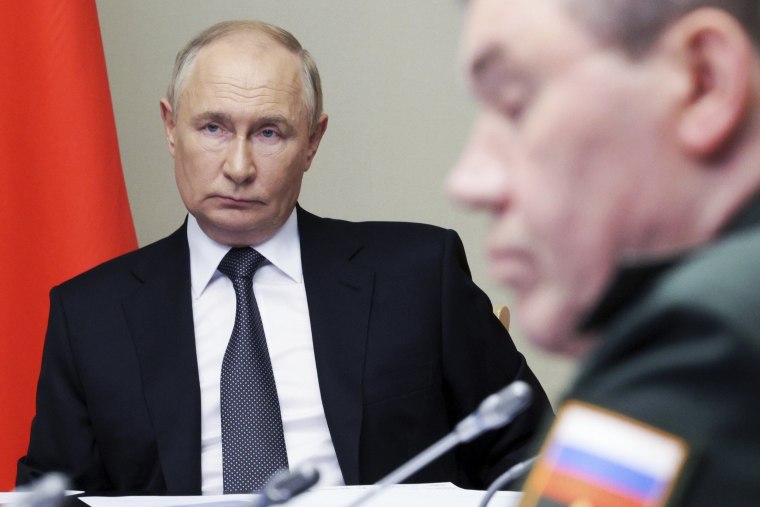
Several allies called for all restrictions on how Ukraine can use Western-supplied weapons inside Russia to be lifted, the diplomat said, signaling some allies disagree with Washington’s approach that Kyiv feels has constrained its ability to take the fight to the Kremlin. CIA Deputy Director David Cohen said at a security conference Wednesday that the Ukrainians “seem to be intent on retaining some of that territory for some amount of time.”
“They are remaining in Russia. They are building defenses,” Cohen said, adding that it will be difficult for Russia to take back the occupied territory.
A member of Ukraine’s security service who just returned from the Sudzha, one of the Russian border towns now held by Ukraine, told NBC News that Ukraine doesn’t need Russian land, echoing statements by the country’s officials who have denied that the Kursk operation amounts to a long-term occupation.
“But for now we need to be here,” said the officer, who did not want his name released for security reasons. “It’s a game we can play together. If you occupy my territories, then we’re here.”
Mykhailo Samus, a Ukrainian military analyst and director of the New Geopolitics Research Network, assessed that Moscow would need two or three divisions, in the realm of 50,000 troops, to fully retake the areas Ukraine now controls in Kursk.
And that’s not a force they seem eager to commit, he said. “It looks like Putin doesn’t care about it.”
Some influential Russian military bloggers have voiced criticism of how the country’s military leadership allowed the incursion to happen, but there has been no great public outrage at how Putin or his top brass have handled the ongoing crisis, even as more than 130,000 Russians have been forced to flee the fighting.
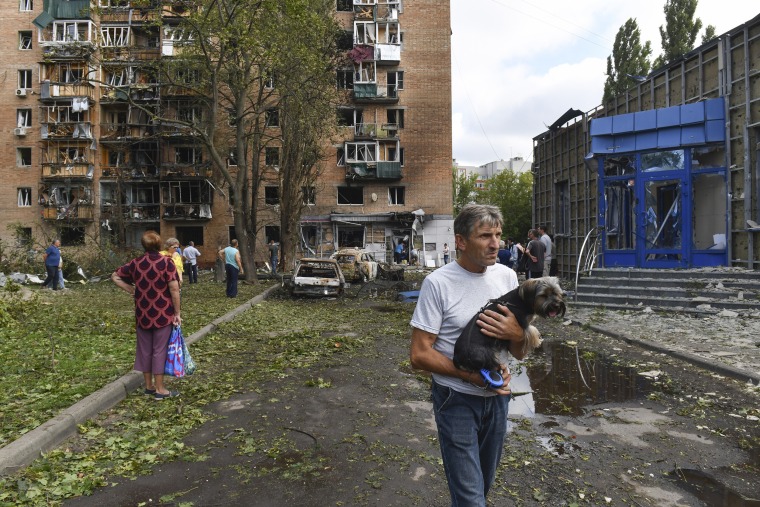
Russian state media has pushed the message that everything is under control, while Putin has continued his routine domestic and foreign travel. And Russians are slowly becoming used to the war creeping into their territory, with strategic sites from air bases to oil depots set ablaze in an expanding campaign of drone attacks deep inside Russia.
But could it all be adding up to weigh on the collective Russian psyche?
That was the fear voiced by political analyst Sergey Mikheev on a state TV show Sunday as he chatted with host Vladimir Solovyov, a high-profile propagandist and ardent supporter of the war.
While there is fighting going on in Kursk, Mikheev pointed out, Ukrainians could celebrate their Independence Day in peace last weekend. “This causes people to lose faith,” he said. “It leads to demobilization and international demotivation. There needs to be an understanding that time is of the essence.”
Whether that’s an urgency the Kremlin shares could decide the fate of Ukraine’s incursion into Russia — and its own eastern defenses.
Erin McLaughlin and Matthew Bodner reported from Sumy, Yuliya Talmazan from London and Dan De Luce from Washington.

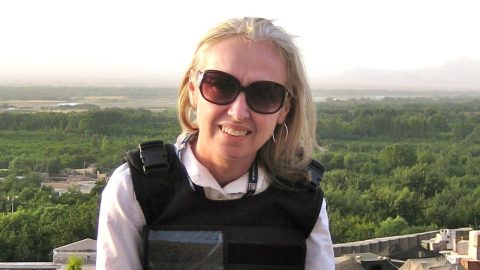
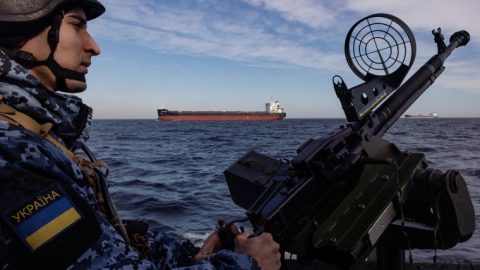
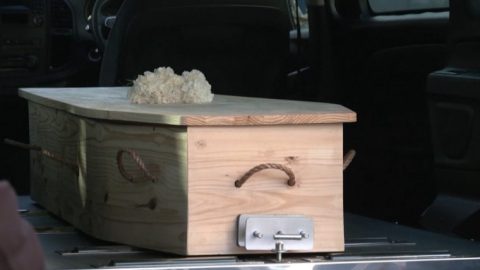
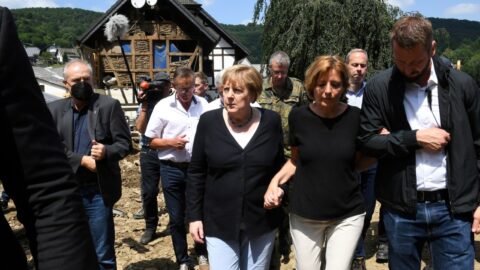

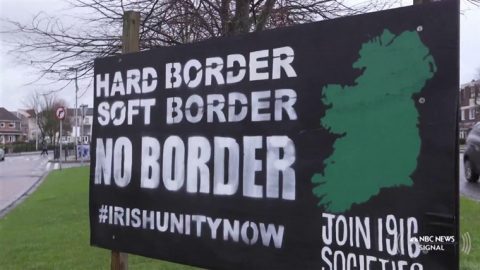
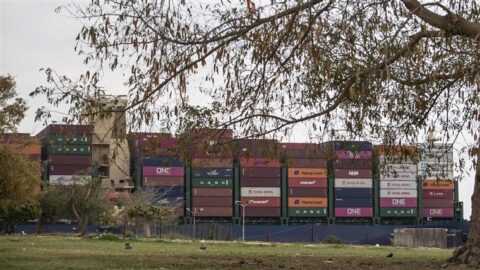
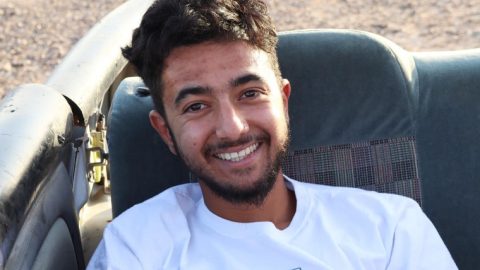
Recent Comments